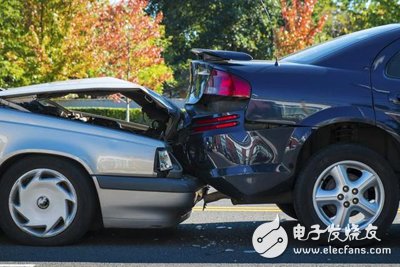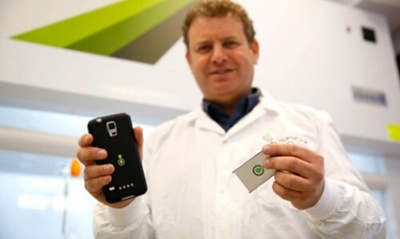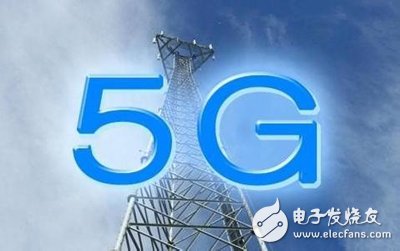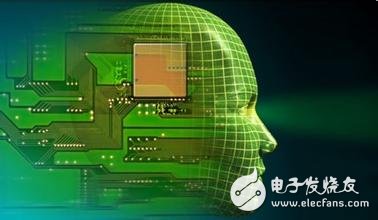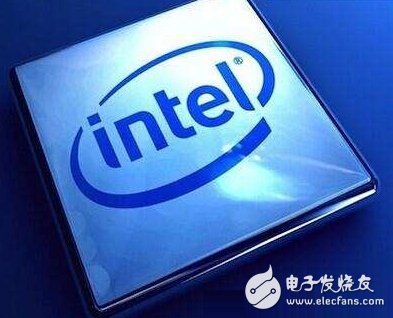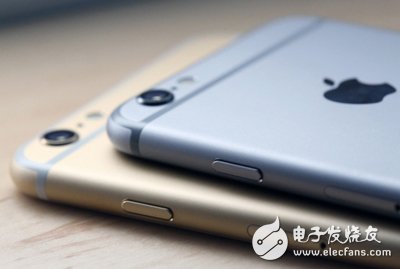Today's core language What if your car can issue a warning a few seconds before a traffic accident occurs? Maybe this will give you enough time to suddenly turn or brake, and even save your life. This is the promise of "car-to-car" technology (V2V). Whether it is car-to-vehicle technology will shine, or the fastest mobile speed of 5G, there is 1 minute full of mobile phones, 5 minutes full of the car's revolutionary charging technology. In 2015, the technology in the electronic field was constantly refreshed... For more information on technology, please pay attention to the electronic core news. First, automotive electronics 1. MIT Technical Review: Car-to-vehicle technology will shine. What if your car can issue a warning a few seconds before a traffic accident occurs? Maybe this will give you enough time to suddenly turn or brake, and even save your life. This is the promise of "car-to-car" technology (V2V). Automakers like General Motors are busy testing the concept of "car-to-car" and plan to apply it to new cars in the next two years. The car-to-vehicle system relies on a radio chip that publishes information about the car's position, speed, steering wheel position, and brake status multiple times in less than a second. The chip allows the vehicle to collect communication information within 400 meters of its center, which is more powerful than the current "driver assistant" sensor, which sometimes only senses the visible range of the driver's naked eye. The MIT Technology Review predicts that car-to-car communication will be one of the top ten technological breakthroughs in 2015. 2, Apple Watch wants to replace the car electronic key. Recently, Apple CEO Tim Cook accepted an interview with the Daily Telegraph. Cook said in an interview that it is a very good idea to look at the information through the watch on his wrist, which is more polite and less disruptive than using a mobile phone. In the meantime he also talked about his apocalypse of the automotive industry. At present, we are not clear about Apple's technical deployment intention, whether to directly copy the existing keyless start system, or seek to convince automakers to integrate Apple Watch-compatible technology in future models. Apple will give details of the Apple Watch at a special launch in San Francisco on March 9. Second, charging technology 1. Revolutionary charging technology comes out: 1 minute is full of mobile phones, 5 minutes is full of cars. Doron Millsdorf, founder and CEO of Tel Aviv startup StoreDot, said his company has developed a new battery pack that can be recharged in less than 60 seconds. Although StoreDot's new battery packs are not as durable as traditional batteries, developers say that the extremely short charging time can completely mask the existence of this short board, and the advent of this technology will make future smartphones more innovative. The StoreDot battery pack consists primarily of a three-stage system: a built-in battery system for the phone, a special charger that delivers powerful current to the battery, and a system that can effectively manage the energy of the phone. This charger is very different from the normal charger, because it needs to input 40-50 times of 80A power to the device in one minute, which is not possible with a normal charger. Millsdorf revealed that the same technology can also be applied to the field of electric vehicles, and the charging of electric vehicles can be completed within 5 minutes. Third, communication news 1. The FDD license is issued, and the communication industry has entered the 4G era. On the 27th, the Ministry of Industry and Information Technology officially issued the 4G business license for FDD network standard to China Telecom and China Unicom. So far, the global TD-LTE and LTE-FDD 4G network standards have been fully rolled out in China, and the era of high-speed networks has come, and the three major operators have also entered the 4G era. By the end of 2014, China has built the world's largest 4G network, with a total of 97.28 million 4G users, of which more than 90% are China Mobile's TD-LTE 4G users. 2, scientists refresh the fastest mobile network speed, 5G transmission 1TB per second. The US media said that researchers have achieved the fastest mobile wireless transmission speed to date, reaching 1 TB per second through 5G connections - about 65,000 times the average download speed of 4G. According to the US "Quartz" financial website reported on February 26, Rahim Tafazzoli, head of the 5G Innovation Center of the University of Surrey in the United Kingdom, said: "The transmission capacity is the same as that of fiber optics, but we are wireless transmission." Previous 5G speed The record was created by Samsung in October last year, at 7.5GB per second. Fourth, artificial intelligence 1. Google has developed a new artificial intelligence system. Google has made new developments in scientific research. Recently, it has been reported that its research and development team has developed an artificial intelligence system that can play games by itself. This system enables computers to play Atari games independently, and in many games. Outperformed human players. According to the Bloomberg website, Google has developed a "computer version of teenagers" - an artificial intelligence system that can play games on its own. Google announced the system on Wednesday and called it the "first important phase" of developing autonomous artificial intelligence technology. 2. Boston Consulting: Robots will accelerate the replacement of human employees. According to a report released by the Boston Consulting Group on Tuesday, in the next 10 years, cheaper and better-used robots will accelerate the replacement of human employees in factories around the world, reducing the labor cost of manufacturing by 16%. The Boston Consulting Group estimates that from now until 2025, the investment in industrial robots in the 25 largest exporting countries will increase by 10% per year, which is higher than the current rate of 2% to 3%. Although the investment is increased, it can achieve lower cost and higher efficiency. The cost of robots is steadily declining. For example, the cost of owning and using robotic welders has dropped from $182,000 in 2005 to $133,000 last year and will fall to $103,000 in 2025. Fifth, semiconductor news 1, Apple once again expand the chip engineer, or will push the ARM version of the Mac. February 27, according to the "Wall Street Journal" report, Apple has been actively mining chip design engineers in Israel in recent days in order to expand its chip design department. According to reports, a large number of Israeli engineers who originally worked for Texas Instruments have switched to Apple. It is understood that Apple's newly hired engineers specialize in processing chips, Wi-Fi chips, flash memory chips and so on. On the chip side, Apple is now able to completely design its own A-series chips that are paired with iOS devices. Perhaps after hiring more chip engineers, the legendary ARM version of the Mac will go a step further. Or, in the future, all the chips in the iOS device will be designed by Apple. 2. Intel will use new materials to manufacture processing chips in the future. According to Intel's latest news, the company will introduce 10nm or even 7nm processing chips in the future. The chips using 10nm process will be released in the first half of 2017, while 7nm will be in 2019. More importantly, Intel will be When the process reaches 7nm, new materials are used to make more advanced chips. As for what new materials will be used, Intel has not announced them. Sixth, intelligent hardware 1, Samsung S6 is coming, look at the leading technology behind. On February 27th, South Korea's Samsung will launch a new generation of smartphone Galaxy S6 at this weekend's Mobile World Congress. The main features of the Galaxy S6 series are Samsung's own top-of-the-line chips and double-sided side screens. The main highlight of the Galaxy S6 series is Samsung's top-of-the-line chips and displays. The Galaxy S6 replaces the Qualcomm chip with Samsung's own application processor chip. The Galaxy S6 also uses Samsung's self-developed multi-faceted display, which no other company has. 2. Analysts say the next-generation iPhone will use 2GB of running memory. According to foreign media BGR reports, Apple may launch a variety of new products such as Apple Watch, iPhone 6s and iPad Pro this year, the performance of these products will also be no small improvement. Barron's Weekly pointed out that the memory supply of mobile devices is expected to be in short supply at the end of the year, because Apple is hoarding this part. According to Summit Research's analysis, Srini Sundararajan said that the next-generation iPhone may have 2GB of built-in memory, 0.5GB for Apple Watch and 4GB for iPad Pro. Not only Apple, LG and Samsung will expand the memory of their smartphones. RBC Capital analyst Doug Freedman said demand for memory components will increase significantly in the second half of the year. Wall Street generally expects that the memory of the iPhone 6s will be between 1.5GB and 2GB. Analysts say the next iPhone will use 2GB of running memory (picture from BGR)
A Battery Management System (BMS) is any electronic system that manages a rechargeable battery (cell or battery pack), such as by protecting the battery from operating outside its Safe Operating Area, monitoring its state, calculating secondary data, reporting that data, controlling its environment, authenticating it and / or balancing it.
A battery pack built together with a battery management system with an external communication data bus is a smart battery pack. A smart battery pack must be charged by a Smart Battery Charger.
Battery Management System Battery Management System,Bms Battery Management System,12V Battery Management System,Lipo Battery Management System Xinxiang Taihang Jiaxin Electric Tech Co., Ltd , https://www.chargers.be
